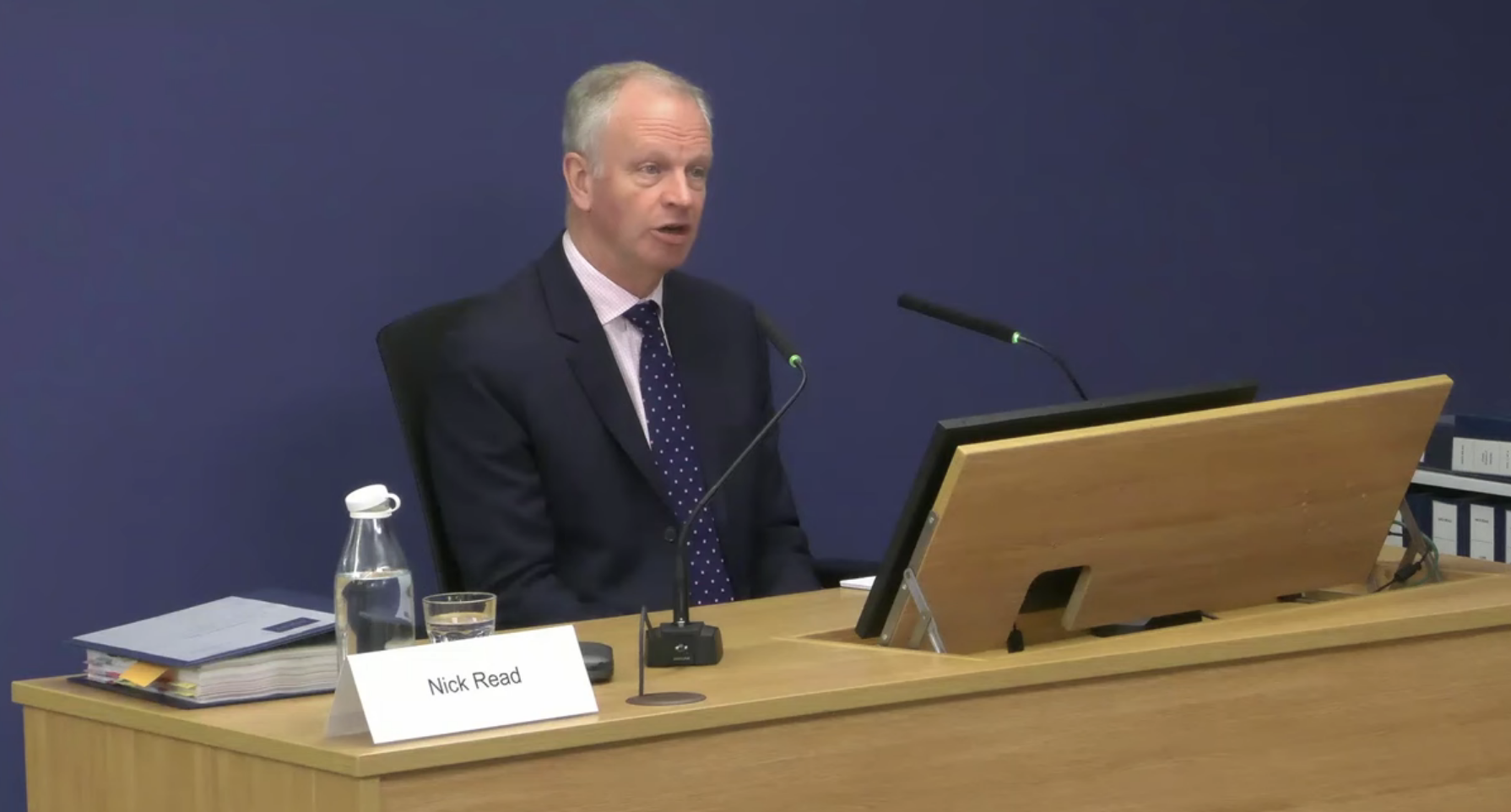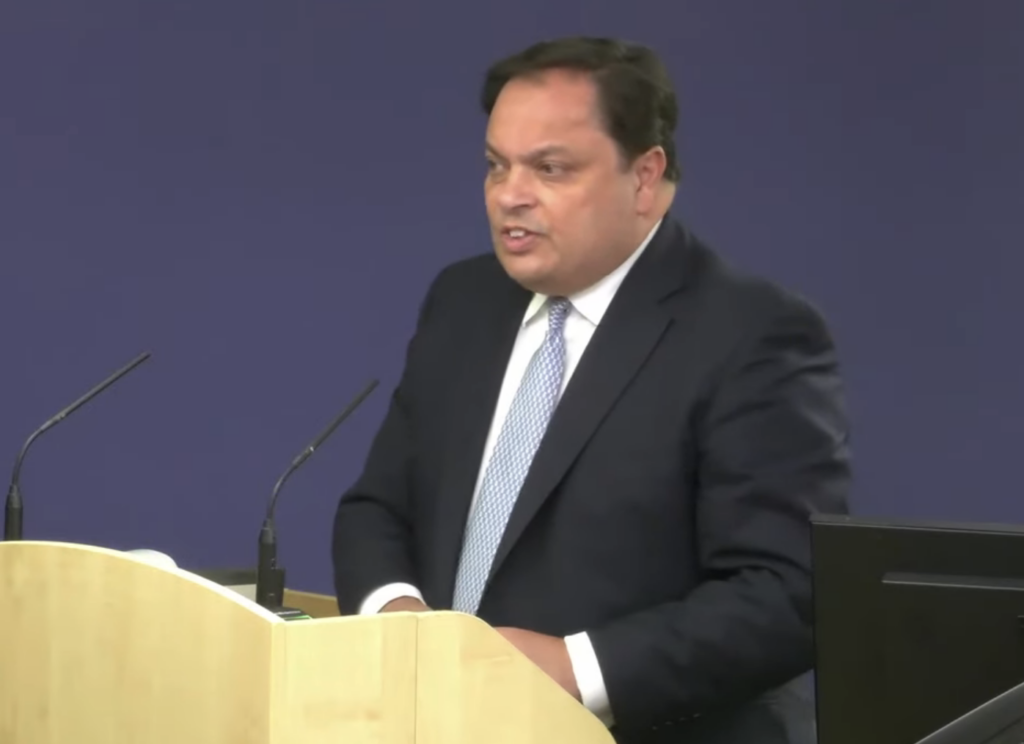
The Post Office Chief Executive has admitted withholding important information from the Post Office Horizon IT Inquiry. The revelation came right at the beginning of the second day of Post Office Chief Executive Nick Read’s testimony to the Inquiry, but related to a comment he made on the first.
On Wednesday Read had told Jason Beer KC (counsel for the Inquiry) that the only reason the Post Office were involved in any of the Subpostmaster compensation schemes was because the government “were of the opinion that the chaos – I think was the word that was used – had been caused by the Post Office. There was a desire for the Post Office to experience some of the discomfort that had been caused.”
Read volunteered he thought this “astonishing” and “missing the point completely”. He then told the Inquiry it was his view that compensation should be delivered “independently”, adding “I’ve been consistent with that view, well, for three or four years now.”
Three or four years, you say?
On Thursday morning Beer asked Read about this again. Read repeated his position, and then added “I think it’s also a view that’s held by others within the Post Office.”
Beer asked for clarity. Was Read’s view that the Post Office should not be involved in compensating Subpostmasters “the corporate view” of the Post Office?
Read confirmed it was, and “has been for some time.”

Beer pointed out there had been four compensation hearings over the last two years, one of which Read himself attended. The hearings were set up so the Inquiry Chair, Sir Wyn Williams could make decisions and recommendations about the delivery of compensation.
Beer asked: “If that was the corporate view of the Post Office why was it not communicated to the inquiry in any of those four hearings? ie ‘we do not want anything to do with redress schemes, we think it is difficult for us to be involved for the reasons that you give, please make recommendations to take this business away from us’.”
Read squirmed. “It’s a good question. I’m not sure specifically why we didn’t say that.”
Beer continued: “The inquiry was considering those very things. There were Subpostmaster groups who were saying take the function away from or do not give the function to the Post Office and the Chairman was considering making recommendations about those very things. Again, I ask, if that was the corporate view of the Post Office, why did it not communicate it?”
Read had no idea. “Clearly we should have done”, he said.
Considerable time, effort and public money has been expended by the Inquiry on trying to scrutinise the various compensation schemes so the Inquiry chair could make recommendations to the government about how they should be run.
That the Post Office’s internal, but long-held position should come as news to the Inquiry more than two years after it held its first compensation hearing is shocking.
Failing to tell the Inquiry it was the Post Office’s settled view it should have nothing do with administering any compensation schemes is misleading by omission.
I have asked the Department for Business and Trade (which owns the Post Office on behalf of the public) whether it was appropriate to punish the Post Office by making it run a compensation scheme (to the detriment of the victims, as it inevitably turned out), and I have also asked DBT what it makes of the Post Office failing to inform the Inquiry of its view on running compensation schemes.
The journalism on this blog is crowdfunded. If you would like to join the “secret email” newsletter, please consider making a one-off donation. The money is used to keep the contents of this website free. You will receive irregular, but informative email updates about the Post Office Horizon IT scandal.

Leave a Reply